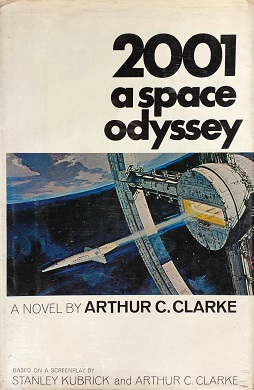
2001 A Space Odyssey
Anyone who ever saw 2001: A Space Odyssey will never forget it. Yet that classic film would never have played before millions of rapt moviegoers had it not been for Arthur C. Clarke’s landmark novel about man’s venture into the horizonless depths of space. Before the book, no one ever would have thought there might be a bit of irreverent pushback from the very starships transporting mankind. The book was pivotal in how we look at the inter-relational aspects of space travel, and was a classic futurist fiction contribution from the practiced hand of a master author.
About Arthur C. Clarke
Born on December 16, 1917, in Minehead, England, to a coastal farmer and his wife, Clarke left home to find work in 1936. He took a job as a government functionary but never forgot the star swept skies over his childhood home and soon became a member of the British Interplanetary Society in London. After World War Two, Wireless World magazine published an article in which Clarke theorized that a geostationary satellite system could be used to transmit radio and television signals around the world. It was the first of many predictive fictional forays for Clarke, and set him well on his way to a successful career in future fiction. He wrote more than a dozen books promoting the heretofore undersupported notion that man could -- and would -- eventually live among the stars.Among his many honors:
- Knighted by the Queen for his contributions to the Realm
- Won several prestigious Hugo and Nebula Awards
- Shared popular acclaim with fellow authors Robert Heinlein and Isaac Asimov when they were given the title of “The Big Three” of Science Fiction
Futurist Themes:
- Technology: The Promise and the Danger
- The Perils of Nuclear War
- Questions of Consciousness and Artificial Intelligence
© Copyright 2021. All Rights Reserved. | Made and Maintained by Virtual Crayon
